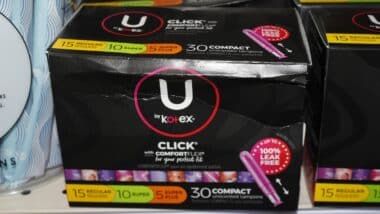 Being on the receiving end of gym text messages in Florida has become a hot button issue with the registration of several accusatory lawsuits against fitness centers over recent years. According to Media Post.com, a 2014 filing against Crunch Fitness under the Telephone Consumer Protection Act (TCPA) was recently brought back to life after being dismissed.
Being on the receiving end of gym text messages in Florida has become a hot button issue with the registration of several accusatory lawsuits against fitness centers over recent years. According to Media Post.com, a 2014 filing against Crunch Fitness under the Telephone Consumer Protection Act (TCPA) was recently brought back to life after being dismissed.
Plaintiff Jordan M. had named Crunch as defendant and alleged they violated the TCPA by sending him three advertising text messages over the span of approximately one year without his consent. The allegations were based upon the TCPA’s restrictions on the use of automated telephone dialing systems (ATDS). The case was originally dismissed in the U.S. District Court for the Southern District of California based upon a very narrow definition of an ATDS by the presiding judge at the time.
The TCPA was passed into law by U.S. Congress in 1991 in response to a massive increase in unsolicited telemarketing contact, text messaging contact, and fax contact by businesses seeking to pass their advertising costs onto consumers. Consumers were being harassed in unprecedented ways at the time—often having to pay through their mobile carrier for this business outreach. Under the TCPA, use of an ATDS without the called party’s consent is against the law, as are the use of unconsented pre-recorded messages.
As indicated by Media Post, Judge Cynthia Bashant had ruled that an ATDS must be capable of not only storing phone numbers under the law, but also being able to randomly generate sequential numbers. In her mind, the plaintiff had failed to prove that Crunch had been contacted using this technology.
Because of this, consumers continued to receive gym text messages in Florida and in other states without consequence. Then in late September 2018, the case was revisited by a panel of three judges in the Ninth Circuit who determined that her definition was too constricted. While a new ruling was not made on the case, the judges did commit to saying that the equipment used possibly met the definition of an ATDS. The case was sent back to the District Court for further adjudication.
Gold’s Gym Faces a TCPA Class Action Lawsuit
While not concerning the receipt of gym text messages in Florida but rather in New Jersey, plaintiff Tzvi Z. filed a proposed class action complaint against Dallas-based Gold’s Gym in the spring of 2018. According to Club Industry.com, the plaintiff claims that he had never had a business relationship with Gold, but started to receive numerous promotional text messages in February last year.
Tzvi alleges that the contact was done through an ATDS and that at no time whatsoever did he give prior permission to be targeted for advertisements in this manner. He alleged that the text messages were aggravating nuisances that wasted his time and invaded his privacy. This Gold’s Gym TCPA lawsuit was scheduled for a settlement conference in March, so a settlement agreement may be forthcoming.
Powerhouse Gym
Among the many recent legal claims filed was a class action lawsuit against Powerhouse Gym of Fort Lauderdale, Fla. This TCPA case—also concerning unsolicited text messages–settled for $600,000 and affects consumers that received these texts June 16, 2017 and March 12, 2019, according to Claims Match.com. Class Members can file a claim by the deadline and may receive up to $30 per qualifying text message.
Despite these puiblicized and high-dollar amount settlements, some Florida fitness clubs may still be engaging in illegal text spam marketing. If you’ve received these unconsented contacts, you may have a legal claim. Top Class Actions can put you in touch with a knowledgeable TCPA attorney to get a better idea of your rights and options.
Join a Free Florida Health Club Text Spam Class Action Lawsuit Investigation
If you live in Florida and you have received unwanted text, voice messages or robocalls from a fitness club, you may be eligible to join a free TCPA class action lawsuit investigation.
This article is not legal advice. It is presented
for informational purposes only.
ATTORNEY ADVERTISING
Top Class Actions is a Proud Member of the American Bar Association
LEGAL INFORMATION IS NOT LEGAL ADVICE
Top Class Actions Legal Statement
©2008 – 2025 Top Class Actions® LLC
Various Trademarks held by their respective owners
This website is not intended for viewing or usage by European Union citizens.














